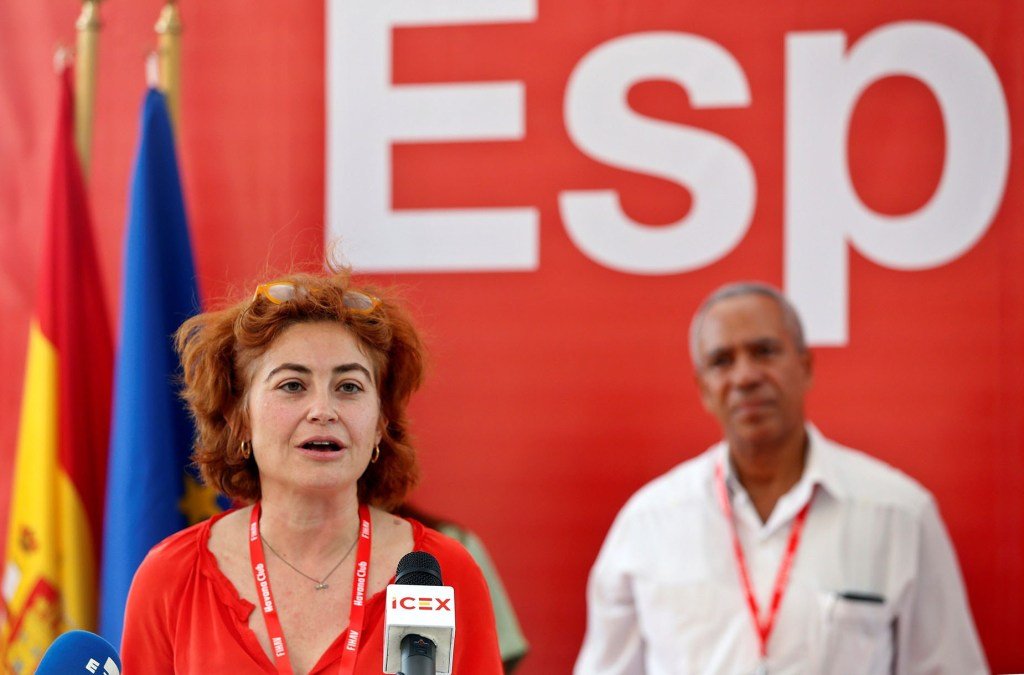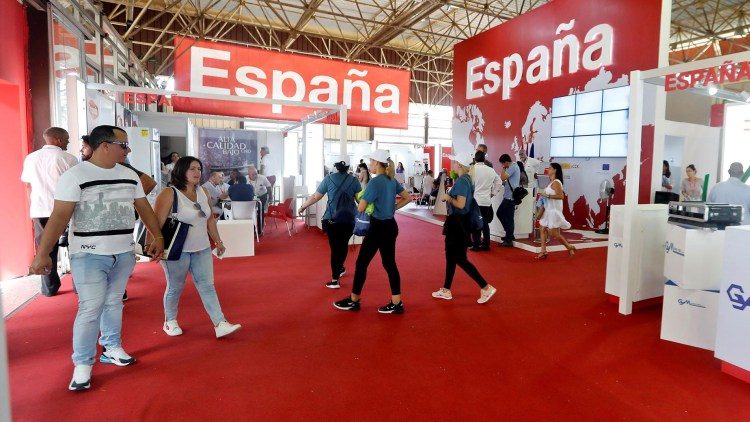With 110 participating companies, in 2019 Spain is again the country with the biggest representation in the Havana International Trade Fair (FIHAV), which kicked off this Monday, at a time when exports to Cuba are growing at an annual two-digit rate.
“Spanish exports to Cuba in the last year have grown by more than 10%, and that means more exports from Spain to Cuba than to countries like Peru, Ecuador and Argentina,” said the CEO of ICEX Spain Export and Investment María Peña.
Peña delivered the speech during the inauguration of the Spanish pavilions in the 37th edition of FIHAV, the largest trade fair on the island being held November 4-8 at the Expocuba fairgrounds, about 25 kilometers southeast of the capital.
Exports to Cuba reached 1.016,2 billion euros between August 2018 and September 2019, representing a year-on-year increase of 10.2%, according to the most recent data published this month by the Spanish Ministry of Industry, Commerce and Tourism.
The trend, according to the ICEX CEO, “clearly reflects that commitment, that reliability, that bet that Spanish enterprises are making on this market to continue being present, independently of the fact that the moments are not the easiest,” in reference to the economic crisis Cuba is experiencing.
This crisis, spurred by the U.S. Donald Trump administration’s intensification of the economic embargo, hinders the Cuban government’s payments to suppliers due to the shortage of foreign currencies, and on the other hand it is making transportation difficult due to the continuous interruptions in the supply of fuel on the island.

Of the 110 Spanish companies attending FIHAV, 64 are grouped in the official pavilion (including six from Extremadura that are participating en masse for the first time), 26 in the Basque Country pavilion and the rest are distributed in other fair spaces.
The sectors to which the Spanish corporations are engaged are varied, from agribusiness, equipment and supplies for the hospitality industry to capital goods, construction, logistics and other services.
Spain is also present in the pavilion of the Mariel Special Development Zone, a port and development area with tax benefits located 45 kilometers west of Havana and considered the country’s star project to attract foreign investment.
Peña promised to “continue working hand in hand with the Cuban productive sector and continue building together the wealth and well-being of the country.”
The ICEX CEO did not mention the defaults that the Cuban State has with the Spanish companies in Cuba due to liquidity problems, a debt that is estimated at about 300 million euros and causes serious difficulties for some of the SMEs of the approximately 300 Spanish corporations that operate on the island.
In 2015, Cuba and Spain reached an agreement for the restructuring of the debt, which included the cancellation by Spain of some 1.6 billion euros (1.78 billion dollars).
As part of this agreement, a Spain-Cuba exchange value fund was instituted which, at the end of 2017, accounted for some 415 million euros (483.8 million dollars) to incentivize Spanish investments in the Caribbean nation.










